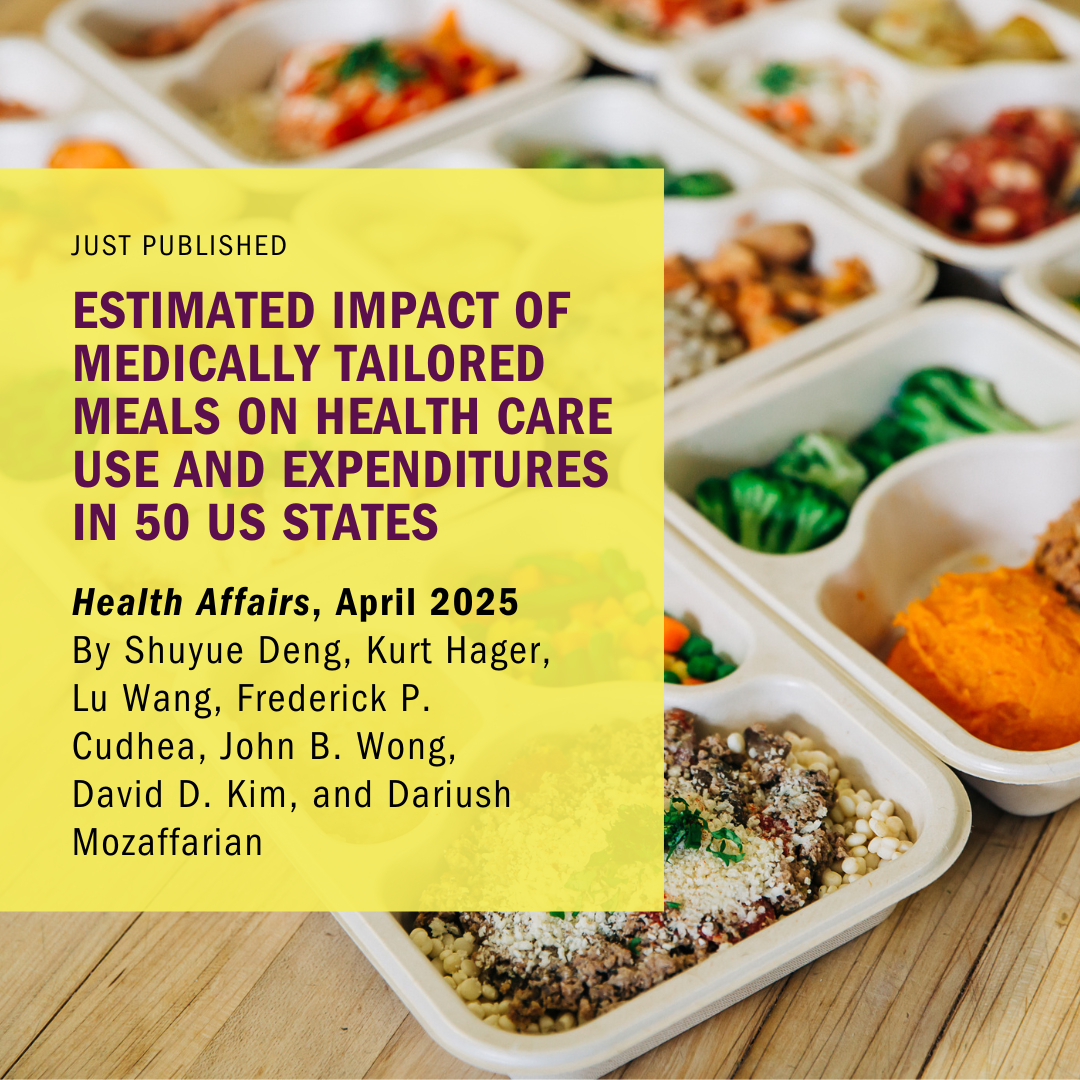
Comprehensive State-Level Analysis Reveals Significant Health Care Savings with MTMs
A groundbreaking study published by researchers from Tufts University’s Friedman School of Nutrition demonstrates that providing medically tailored meals (MTMs) to high-risk patients with diet-related conditions would avert a meaningful number of hospitalizations across all states, thus leading to substantial cost savings across nearly every U.S. state.
Using a population-based simulation model to estimate the nationwide impact of providing medically tailored meals for approximately 14 million eligible patients. It found that the intervention would save millions in healthcare costs during the first year alone — even after accounting for intervention costs — and avert 3.5 million hospitalizations annually. The intervention was estimated to be cost-saving in 49 states and cost-neutral in one state, with cost savings ranging from $6,299 per patient (Connecticut) to $732 per patient (Oregon) in one year.
The Power of MTMs
These findings underscore the power of medically tailored meals to improve health outcomes while reducing health care costs. This study offers state-specific data that equips policymakers and insurers with the evidence needed to expand MTM coverage as a cost-effective strategy to improve health outcomes and reduce healthcare spending.
MTMs are prepared, home-delivered meals that are prepared assigned to an individual using evidence-based, therapeutic guidelines, based on an assessment of their nutrition needs by a registered dietitian nutritionist. Typically provided to individuals with complex health conditions and limited daily living abilities, MTMs have been shown to improve health outcomes, lower healthcare costs, and increase patient satisfaction. MTM agencies from the Food Is Medicine Coalition (FIMC) contributed data to the study from their long partnerships with health care. The mean cost of meals across the country was utilized, with prices varying significantly based on food and agency operating costs, state landscape, delivery mechanism and other factors across regions.
FIMC agencies created the MTM intervention 40 years ago as a response to community need.
Much of the research in the field has been done on our model – which we recently released in a standard – and we are thrilled to see the cost-effective results borne out in this independent state-based analysis. We know that these results are not possible without nutritious food, community connection and a focus on clients.
As states explore adding MTMs to their Medicaid programs through demonstration projects, this study offers timely insights to inform state-level policy decisions. The results suggest that expanding MTM access nationwide could reduce health care spending and improve population health outcomes.
About the Study
The study, “State-Level Cost Savings of Medically Tailored Meals in the United States,” was conducted by researchers from Tufts University and published in Health Affairs on April 7, 2025.